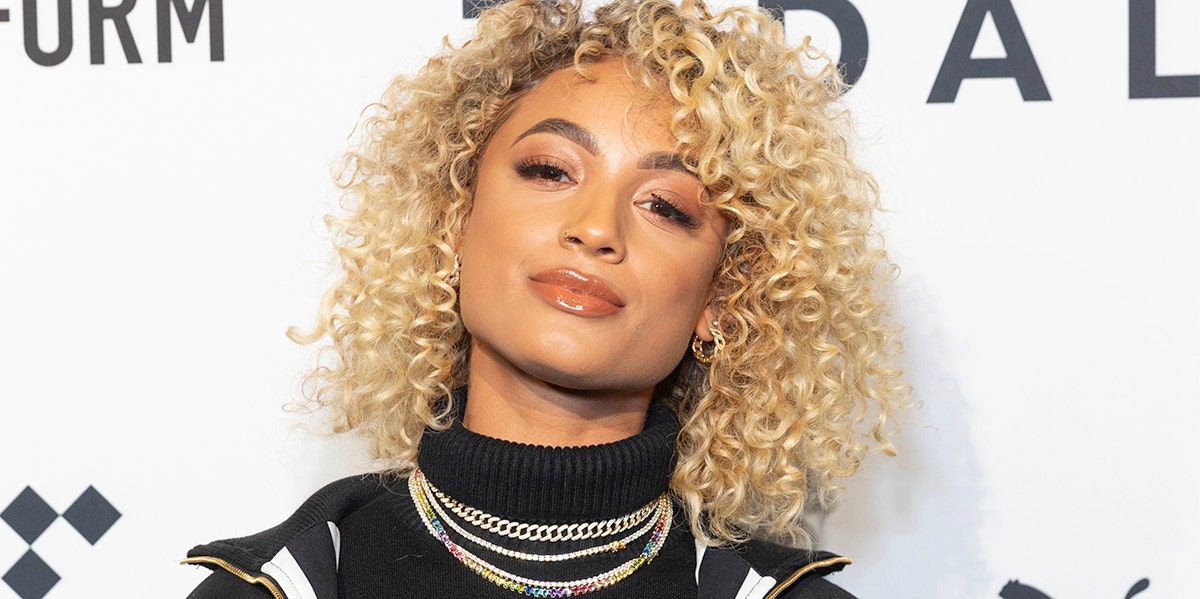Why DaniLeigh's Song 'Yellow Bone' Is Another Example Of Light-Skinned Privilege Within The Black Community
We don't need another light-skinned anthem.
 lev radin / Shutterstock
lev radin / Shutterstock Over a week ago, singer DaniLeigh came under fire for posting a now-deleted clip to a song she’d written called "Yellow Bone" — which is AAVE slang for lighter skinned Black women — on social media.
Immediately, she received a loud backlash of criticism from the Black community.
It seems like the conversation surrounding colorism — and the privilege behind being a light-skinned Black woman — is always happening. And yet, people don’t seem to fully understand it.
But let me make this clear. We don’t need another light-skinned anthem.
Light-skinned women have consistently been the default when it comes to Black beauty standards.
Those ideas were born from racism and white society’s gaze. Though, colorism can go both ways in the Black community.
RELATED: Hollywood's Obsession With Casting Light-Skinned Black Women Needs To Stop
While darker-toned women are seen as less desirable and less respectable, those with lighter skin are often not seen as Black enough, becoming completely ostracized by the Black community as a whole.
But even though these prejudices affect both light- and dark-skinned Black women, it’s no secret that colorism has been perpetually set on dark-skinned women so much more.
The history of colorism dates all the way back to slavery. When slave owners would non-consensually mix with their slaves, those children — who would come out light — would become favored by the slave owner and given special treatment.
Now, over four hundred years later, lighter skin is still a favorable trait.
The act of colorism, that has been influenced and created by white people, seems to only bring damage to the Black community. It damages our self-esteem, and further perpetuates our self-loathing when it comes to how we are perceived by white people.
After seeing the backlash, DaniLeigh took to Twitter to voice her opinion on the topic.
In a series of now-deleted tweets, the singer commented: “Why can't I make a song for my light skin baddies? Why ya'll think I'm hating on other colors when there are millions of songs speaking on all types...why ya'll so sensitive and take it personal...gahhh damn."
It was one thing for her to make the song, but it’s another thing for her to completely invalidate the feelings of Black people when they tell her that her song is harmful.
But, it seemed as if she wasn’t done there, tweeting out again: "I'm Dominican… I'm Spanish. I'm black I'm white… leave me alone.”
Now, it is never my place to police someone else’s Blackness, and to be the judge on if someone isn’t “Black enough” or is even Black at all.
But, DaniLeigh seems to think that just because she’s from the Dominican Republic, it means she’s automatically Black.
RELATED: Is The Health Care System Racist? 5 Ways Black People Are Affected By Medical Racism
Being Dominican is not a race, it is an ethnicity. And while much of the population of the Dominican Republic is linked to the African diaspora — it doesn’t automatically give you some sort of pass to make a song about light-skinned women.
The history of the Dominican Republic, and their identity with race is a complex one.
Some native Dominicans identify as "Indio" or Spanish instead of Black – even though their race is defined as Black.
Because of this denial, the lines seem to blur when it comes to the census, further complicating who actually comes from African descent. And that blurred line allows people like DaniLeigh to exploit and claim Blackness.
DaniLeigh has since apologized for her song, although the apology isn’t anything near sincere.
There are many things that were wrong with her apology video.
First, she records herself wearing box braids and talking in a blaccent. Then, she denies being a colorist, even using the age-old phrase of; “Well I have Black friends, and a Black boyfriend, so how am I being racist.” Which is a lackluster excuse, and a very popular tactic to excuse racist behavior.
It’s not even the fact that she used that phrase, but rather that instead of saying Black, she referred to her rapper boyfriend. DaBaby as a “chocolate man,” and used the term “melanated friends.”
DaniLeigh went on to say that she just wants a song for light-skinned women, like herself, and that Beyoncé was able to make a song about brown-skinned girls, so she should be able to do the same.
Except, Beyoncé’s song was meant to uplift brown-skinned girls who often are the brunt of racist jokes and get no representation in the media. Whereas light-skinned women have never had to face those issues.
There needs to be some self-reflection when it comes to people like DaniLeigh, and other celebrities who think either colorism doesn’t exist — or believe their actions don’t further feed into negative stereotypes.
Nia Tipton is a writer living in Chicago. She covers pop culture, social justice issues, and trending topics. Follow her on Instagram.

